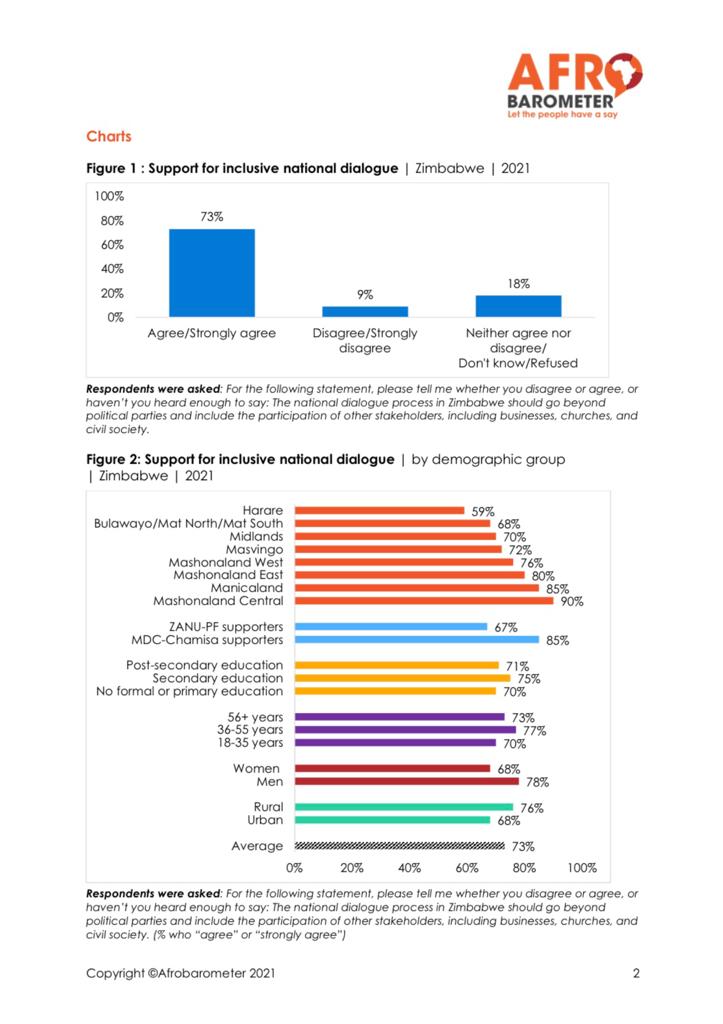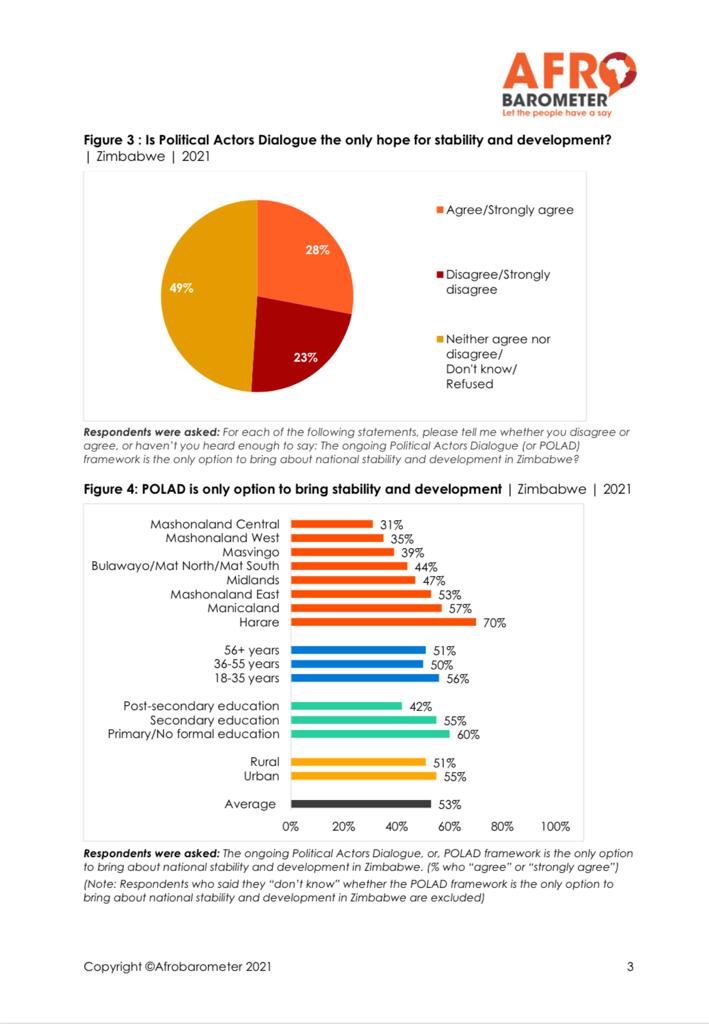Most Zimbabweans have no faith in the Political Actors’ Dialogue (POLAD) platform but rather prefer an all-inclusive dialogue, as a way of uniting the ‘highly’ divided nation, a recent Afrobarometer survey has revealed.
POLAD was set up by President Emmerson Mnangagwa soon after winning the 2018 presidential elections, with critics describing it as a ‘platform of losers,’ as it consists of Zanu PF and fringe political parties who performed dismally in the last polls.
Mnangagwa’s main rival, Nelson Chamisa snubbed the platform insisting it is of no relevance while the Zanu PF leader vowed it was the only platform for dialogue in Zimbabwe.

According to the recent survey conducted by the Mass Public Opinion Institute (MPOI) on behalf of Afrobarometer after interviewing 1 200 adult citizens, 73 percent said the national dialogue process should go beyond political parties and include other stakeholders such as business, churches and civil society.
“But only about one in four citizens endorse the POLAD framework as the only viable option for bringing stability and development to Zimbabwe, while almost half of citizens do not offer an opinion on the POLAD framework,” said part of the survey report.
MPOI said calls for national dialogue were more prevalent among rural folk, who comprised 76 percent than urbanites who made up 68 percent.
From the study more men at 78 percent supported the national dialogue compared to women at 68 percent.
Calls for the national dialogue were also “more common among MDC-Chamisa’s supporters (85 percent ) than among Zanu-PF adherents (67 percent),” the survey noted.

Only 28 percent of the 1 200 respondents said POLAD is the only option for bringing about national stability and development in the country.
“One in four citizens say the ongoing POLAD framework is the only option for bringing about national stability and development in Zimbabwe,” said MPOI.
However, “almost as many 23 percent disagree with this assertion while almost half – 47 percent refused to answer the questions,” the survey further revealed.
MPOI noted that among those who offered an opinion on POLAD, 42 percent of the respondents with post-secondary education are least likely to see it as the only option, compared to 60 percent with primary schooling or no formal education.
Afrobarometer is a pan-African, non-partisan survey research network that provides reliable data on African experiences and evaluations of democracy, governance and quality of life.

